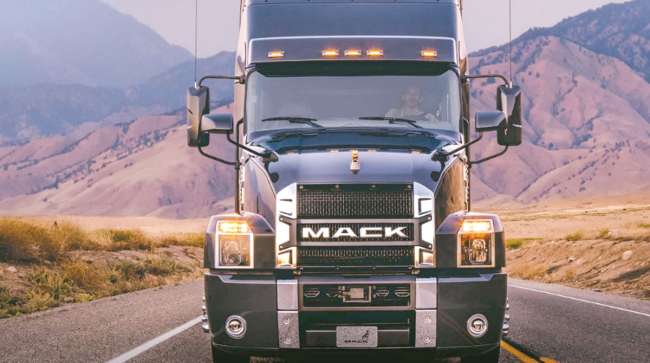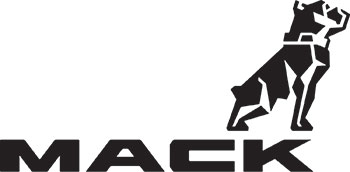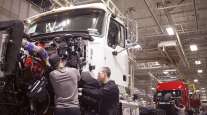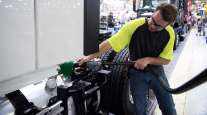Mack Aims to Gain Market Share in the West

OAKLAND, Calif.— Mack Trucks is working to rebuild its Western presence and grow its Class 8 market share in the region with its latest models.
“We are going to focus on this region as an opportunity for growth because we believe we have the right trucks and right technology to grow in this,” said Jonathan Randall, Mack’s senior vice president of North American Sales, speaking during a press conference at the Oakland Raiders headquarters.
Randall said that Mack has a 5% share in the Western market and wants to get it equal to its national share level, which is 8.2% for the United States and Canada. Mack developed lightweight but high-power models “to face the high altitudes, long grades and demanding desert temperatures of Western operations,” he said.

The launch of the Mack Anthem has “generated enthusiasm from customers that wouldn’t have been in our normal wheelhouse,” which is opening doors for the OEM, Randall said. “We expect that you’re going to start seeing these trucks running in colors with badges on the side that you haven’t seen in a number of years,” he said.
Mack’s 13-liter MP8 engine produces up to 505 hp and 1,860 pound-feet of torque, which allows the tractor to handle steep grades while maximizing fuel efficiency, said Director of Product Strategy Roy Horton. The MP8 can also be spec’d with turbo compounding, which captures wasted exhaust heat and converts it to usable power, and creates a 9% improvement in fuel economy, he said.
Mack has made the inside of the cab more driver-centric, moving controls to the steering wheel to improve access for drivers, and creating a flat-bottomed steering wheel that eases entry into the cab and sleeper, Highway Product Manager Stu Russoli said.
Next year, buyers can spec infotainment, which will include Tom Tom navigation, Apple air play and a back-up camera that will show on the 7-inch touch screen, Russoli said.
To help capture the secondary buyer market, Mack has focused on more robust switches so the images will not wear off, Russoli said. “Now you have a better impression of Mack for the second owner,” he said.
Mack projects the new Class 8 truck market to reach 260,000 units in 2018, up from about 235,000 this year, Randall said. “Pressure is upward based on the order uptake we’re seeing,” he explained.
The construction segment continues to be stable, manufacturing levels are increasing, the inventory to sales ratio is at a good level and freight volumes are improving, he said. “Everything is lining up for the good year everybody is projecting,” Randall said, adding that Mack expects to grow its sales in the regional and longhaul market.
Mack is also driving growth with “products developed specifically for each customer’s unique needs in the highway, construction and refuse markets,” Randall said. “We are all about application expertise.”
Horton said that although diesel remains the predominant fuel in trucking and is running cleaner than ever, Mack continues to experiment with alternatives, including natural gas, which it offers on its Anthem.
“Electricity is on the bubble and it is something everyone is looking at. It is definitely going to be part of our future. Exactly how that will take shape is the question,” Horton said. “We have and continue to investigate all of the viable alternatives.”
Mack has created range-extended electric vehicles, diesel-electric hybrid solutions for drayage applications, and recently announced its work with Siemens in which three trucks hauling freight are running along a stretch of highway which uses Siemens technology to electrify select lanes via an overhead catenary system.
“Mack is well positioned no matter what way the industry goes,” Horton said, adding that he expects Class 8 tractors to first be deployed in segments where they return to home base daily, followed by local delivery and public transportation applications, then along fixed routes where infrastructure is secured and range requirements are less, and ultimately, longhaul.
Randall said Mack is focused on that time when long-term electric applications become viable. “When the commercial viability is there, we will be able to jump in,” he said.





